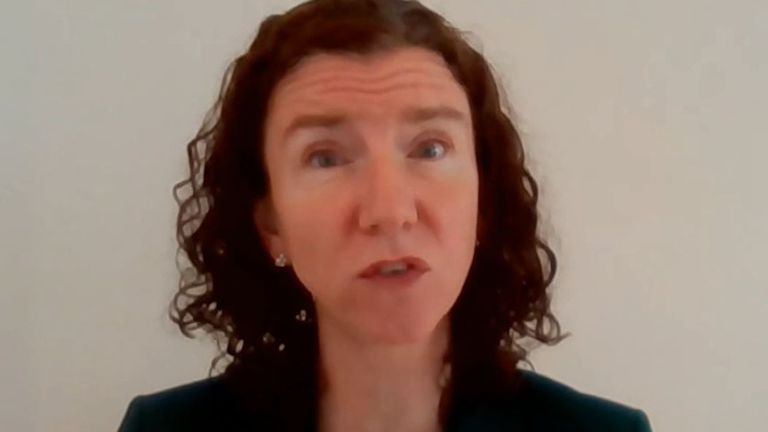Coronavirus: Thousands of jobseekers scammed in surge of fake employment listings
Thousands of jobseekers are being scammed in a surge of fake job adverts, as fraudsters exploit the rise in unemployment.
Reports of fake listings soared by 70 percent between March and October, according to SAFERjobs, an organisation that tracks employment fraud.
Since the pandemic began, it has received 750 reports of job scams, which aim to trick people into handing over money or personal data. It estimates there have been about 3,750 victims in total.
“We’re experiencing a real epidemic in terms of the amount of job scams that are out there at the moment,” SAFERjobs chair Keith Rosser told Sky News.
“More people are out of work, more people are reliant on technology to find work, and fraudsters are finding it ever easier to advertise fake jobs.”
After being offered the job, applicants are generally asked to pay for a uniform, training or a security check before they can start work. The latter often involves handing over valuable personal information.
“These adverts are usually very generic. They’re very easy for people to apply to, with very low barriers to entry,” Mr Rosser said.
Derek, not his real name, is too embarrassed to be identified after falling victim to one such scam.
After submitting his CV for a job as an online chat operator, he was asked to complete an online test before being offered the job a week later.
He was then asked to pay £23 for an online Disclosure and Barring Service (DBS) check, which involved submitting details including his National Insurance number.
“It kind of made me very sad and kind of angry as well. They have no right to scam people like that, giving false hopes,” Derek told Sky News.
“My ID is gone. I have to change my bank details. I’m going to have to call them to get a new passport and things like that.”
“It’s going to waste my time and I’m losing hope because of this problem.”
Derek graduated in the summer with a degree in chemical engineering. Like thousands of others, he’s been forced to look for whatever work he can find as a result of the pandemic and subsequent economic crisis.
“It was kind of my fault for being too desperate and not doing my research properly,” he said.
“When you’re desperate, you just do anything you can to get a job.”
The scam he fell for was listed on the online jobs platform Indeed, where he believes 10 percent of the positions he has looked at are fake.
“You can tell they’re fake because of the bad grammar. But the one I had was very professional,” he said.
Derek was sent what appeared to be a full employment contract from a company with a seemingly legitimate website.
But after he submitted his details for what he thought was a criminal record check, he heard nothing back.
“I searched the address and tried to track it down. The building was not occupied. And that’s when it clicked. That’s when I realised it was a scam,” Derek said.
An Indeed spokesperson said: “Our 24/7 Search Quality team has developed a clear set of signals to automatically identify and remove poor quality sites or posts. The vast majority of companies whose jobs appear on Indeed provide quality job content for fair and verifiable opportunities.
“We encourage jobseekers to report these types of advertisements to us and we will continue to strive to prevent illegally discriminatory job solicitations from appearing on our site.”
:: Subscribe to the All Out Politics podcast on Apple Podcasts, Google Podcasts, Spotify, Spreaker
Campaigners are calling on the industry, and government, to do more to tackle the problem.
“It’s all too easy for people to put fake job adverts onto sites,” Mr Rosser said.
“Our current legislation that surrounds the hiring and recruitment process is actually grounded in the 1970s when people were applying for jobs through looking at job advert cards in shop windows and that legislation really needs to be updated to be relevant to the modern world.”
Mr Rosser says legitimate employers will never ask for money and advises jobseekers to do their research.
As Derek puts it, “don’t just jump in because these scammers will just get you any way they can”.
Source: Read Full Article







